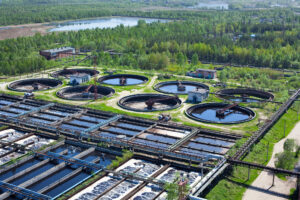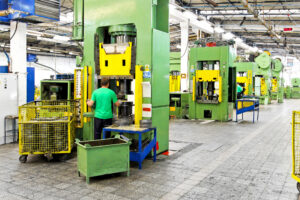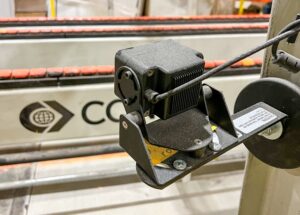CCTV video monitoring systems for industrial facilities are the norm today. You’ll be hard-pressed to find such a facility without a state-of-the-art video monitoring system in place.
Surveillance cameras aren’t new. In fact, the oldest mechanical CCTV system dates back to the 1920s. Back then, it was manually operated and had a resolution of a hundred lines. The first modern CCTV system was built by Vericon, a US company, in 1949. There was no way to record the feed, but just three years later, in 1952, the videotape recorder was invented.
These inventions mark the beginning of the CCTV industry. Today, however, thanks to technological advancements, CCTV cameras are ubiquitous and have far more applications. Let’s take a look at the five most important things to know about these devices that follow us around everywhere.
CCTV Video Monitoring Systems for Industrial Facilities
We’re so accustomed to cameras everywhere that we don’t even notice them anymore. But here are some things you may not have known.
1. There Are More CCTV Cameras than Ever
The average American is caught on camera 238 times per week. Out of those, 160 times happen while driving and 40 times while working.
There are now more than 80 million cameras in the U.S., and that number is expected to continue to grow. Based on our experience in the CCTV industry, we’re seeing this happen not just in government and consumer venues but also in industrial applications.
2. CCTV Systems Have Benefits Beyond Surveillance
While surveillance remains an important benefit, especially for industrial facilities that use expensive machinery and expensive materials or employ a lot of workers, there is more to CCTV video monitoring than access control and theft prevention.
The biggest benefit our clients report after installing Opticom CCTV systems in their industrial facilities is improved operations. With video surveillance in place, they can easily spot a faulty piece of machinery before it wreaks havoc on the entire site.
When a remote operator monitors the feed, they can even save lives. For instance, a faulty conveyor belt or a log going into the line sideways can be dangerous—unless it’s caught on camera in time to stop the line.
3. CCTV Video Systems Can Streamline Operations
93% of companies who use CCTV systems report improved operations. How does this happen?
Well, it can be as simple as the scenario described above, where the cameras help you watch your operations for dangerous or faulty equipment. Catching issues early means you won’t face as many business disruptions or have to spend a lot of money fixing what could have been prevented.
Better yet, CCTV feeds can be used to train new employees. For that, you need to observe your current employees’ processes and work patterns to figure out what can be improved to boost productivity. As soon as you have these answers, you can use them in onboarding training for ongoing operations streamlining.
4. Not All CCTV Video Systems for Industrial Applications Are Equal
As technology advances, cameras become more affordable every day. If you need a basic camera to monitor your pets while you are away from home, off-the-shelf options are great.
For most industrial applications, however, non-ruggedized cameras won’t cut it. In industrial facilities, your cameras will have to withstand harsh environments. Dust, debris, humidity, high vibrations, oscillating temperatures—these are just a few of the things that can kill an off-the-shelf camera within a few days.
Ruggedized cameras, on the other hand, are built to withstand all that and more. For example, our CC02 camera even withstood being hit by a log on a debarker and can handle being run over by a truck.
Ruggedized CCTV video monitoring systems have a lower cost of ownership and are worth the investment because you won’t have to replace them every few months (or even every few weeks).
5. You Need an Expert Partner in CCTV Monitoring System for Industrial Applications
To configure the right CCTV video monitoring system in industrial applications, it’s important to work with an experienced partner. A partner like Opticom can help you get the most out of your industrial video monitoring system by working with your facility’s needs and budget.
By building a CCTV system on your own, you may end up with one that’s too expensive—just to make sure you have all your bases covered or because you weren’t clear what you did and didn’t need. You could end up paying for features you never use. The opposite could also happen and you could buy a CCTV system that’s not built for your specific application and therefore useless.
While most ruggedized cameras are built to withstand (almost) everything you throw at them, a specialized consultant will tell you if you need to invest in explosion-rated cameras (important for mines) or if it’s better to spend your money on stainless steel cameras (ideal for food processing plants).
At Opticom, we are more than a hardware seller. We work with each industrial facility to understand its unique CCTV needs. Since we have over 50 years in this industry, we know exactly what types of cameras are ideal for each application.
Want to maximize your budget for CCTV video monitoring systems for industrial applications and make sure you make the right choice? Our consultants are just a phone call or an email away.







